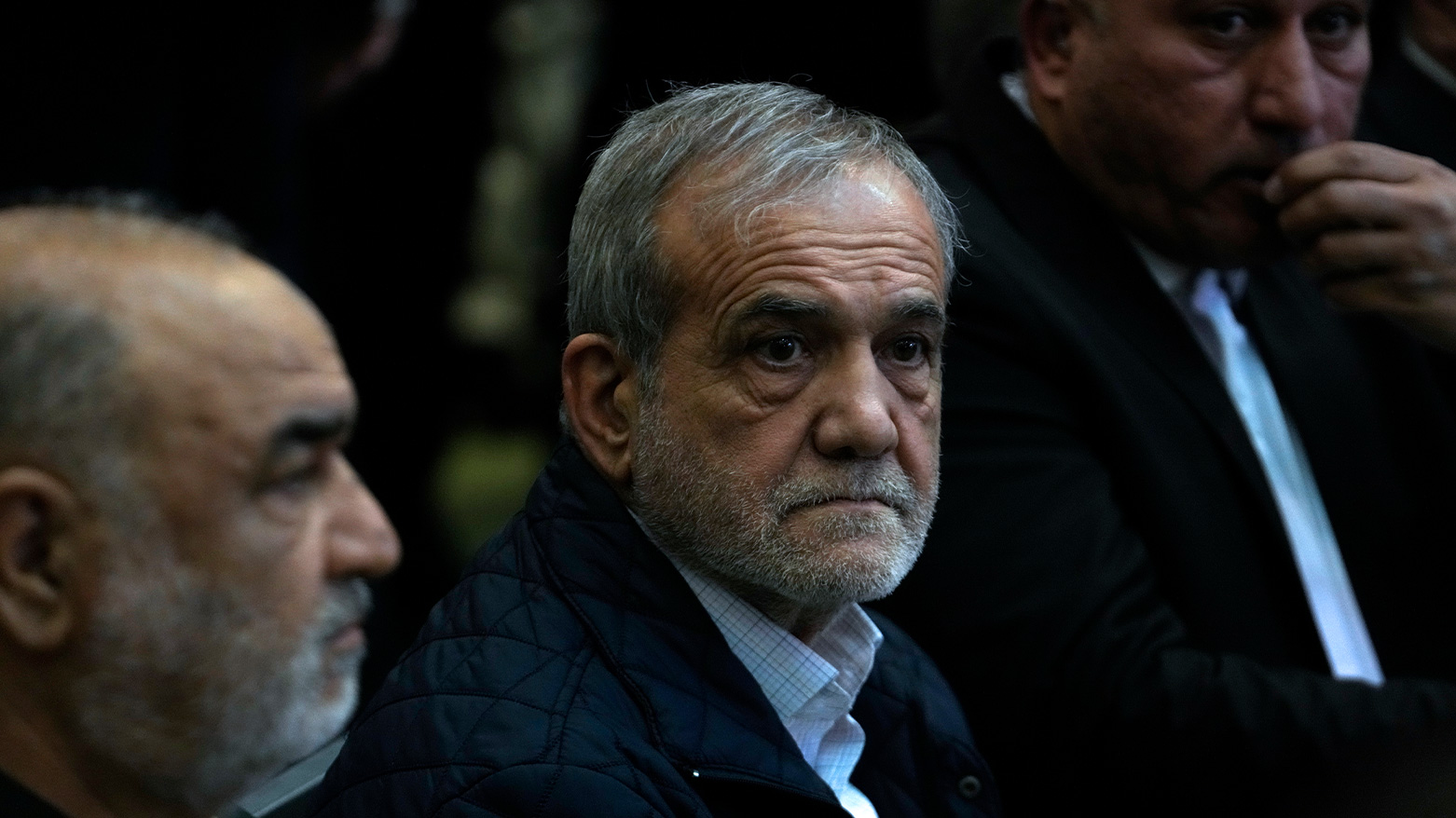‘If You Want Talks, Stop the Threats,’ Pezeshkian
In a statement focused on Iran’s foreign policy and regional posture, Pezeshkian underscored Tehran’s longstanding position that dialogue must be based on mutual respect and parity—not coercion.

By Kamaran Aziz
ERBIL (Kurdistan24) – Iran’s President Masoud Pezeshkian has rebuked U.S. foreign policy, accusing Washington of adopting a double standard that undermines any serious path to diplomacy. His remarks come amid increasing tensions in the Middle East, and as the United States renews efforts to pressure Tehran - through its 'maximum pressure' campaign - into dismantling its nuclear program.
In a statement focused on Iran’s foreign policy and regional posture, Pezeshkian underscored Tehran’s longstanding position that dialogue must be based on mutual respect and parity—not coercion.
“The Islamic Republic of Iran seeks dialogue from a position of equality; not a situation where, on one hand, Iran is threatened, and on the other hand, they ask for negotiations,” he said, as reported by the Islamic Republic News Agency (IRNA). “If you want negotiations, then what is the purpose of the threats?”
Pezeshkian accused the United States of both insulting Iran and humiliating the international community, stating, “Such behavior contradicts the call for dialogue.” He also highlighted the importance of domestic unity as a defense against foreign plots, adding, “If we avoid internal conflict, foreign conspiracies will not succeed.”
His remarks arrive at a particularly fraught moment. According to a report by The Wall Street Journal, the Trump administration is actively pressing for direct nuclear talks with Iran, aiming for a sweeping deal that goes far beyond the 2015 nuclear agreement.
U.S. officials reportedly want Tehran to dismantle its entire nuclear program—an outcome that Iran has repeatedly rejected, citing its right to enrich uranium for peaceful purposes.
President Trump, who withdrew from the original nuclear accord in 2018, has suggested that direct engagement would be more effective than the previous indirect negotiations. Trump recently stated that he believes Iran would prefer face-to-face talks, but he has simultaneously threatened military action if no deal is reached within two months.
The U.S. has significantly expanded its military footprint in the region, deploying additional carrier strike groups, B-2 bombers, and air defense systems. The White House has made it clear that Iran will be held accountable for any attacks by allied forces such as the Houthis in Yemen. This message was underscored after Trump launched what were described as “powerful” strikes against Houthi positions last month.
According to a report by Breitbart, Iran is now scaling back its support for the Houthis in Yemen, reportedly ordering military personnel to withdraw to avoid direct conflict with U.S. forces.
A senior Iranian official cited by the UK Telegraph and relayed through Breitbart stated that Tehran’s focus has shifted to “Trump and how to deal with him,” signaling that Iran may be reevaluating its regional proxy strategy under mounting military and economic pressure.
While Pezeshkian’s rhetoric maintains Iran’s longstanding defiance, it also reflects a shifting geopolitical landscape. Iran’s domestic economic challenges, the loss of air defense systems in Israeli strikes, and the withdrawal from Yemen point to growing vulnerabilities.
At the same time, U.S. intelligence reports cited by The Wall Street Journal suggest that Iran is closer than ever to being able to assemble a nuclear weapon, possibly within weeks if it chooses to proceed.
Despite his harsh words for Washington, Pezeshkian’s statements may be aimed at consolidating national unity and signaling readiness for strategic recalibration. As pressure mounts from all sides—diplomatic, military, and economic—Iran’s leadership faces a narrowing set of choices. Whether this leads to a diplomatic breakthrough or further escalation remains to be seen.
In this volatile environment, Pezeshkian’s insistence on respect and equality in negotiations signals Iran’s red lines, even as it maneuvers to respond to one of the most assertive U.S. foreign policy campaigns in years.